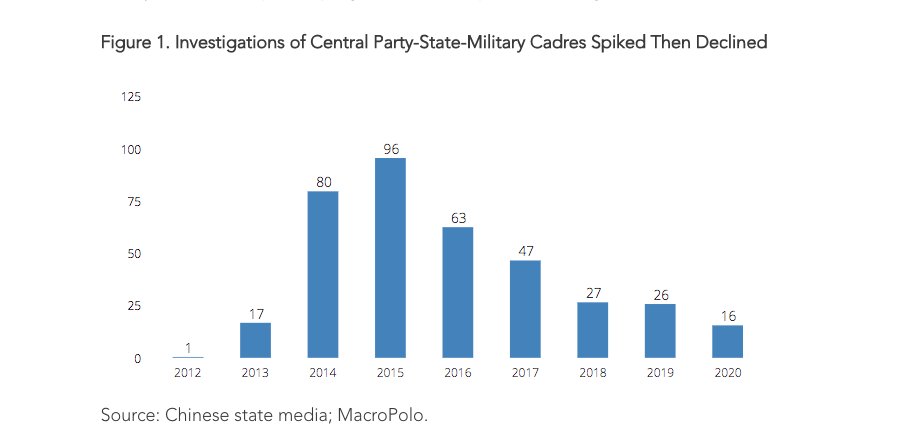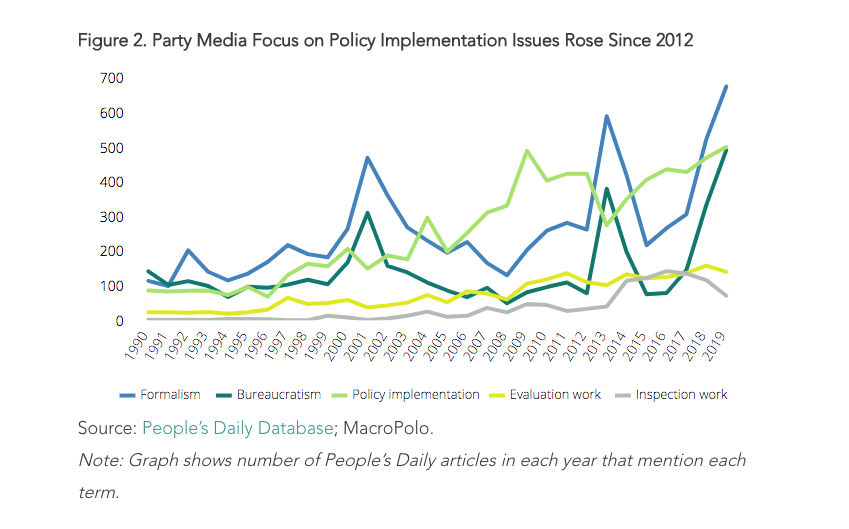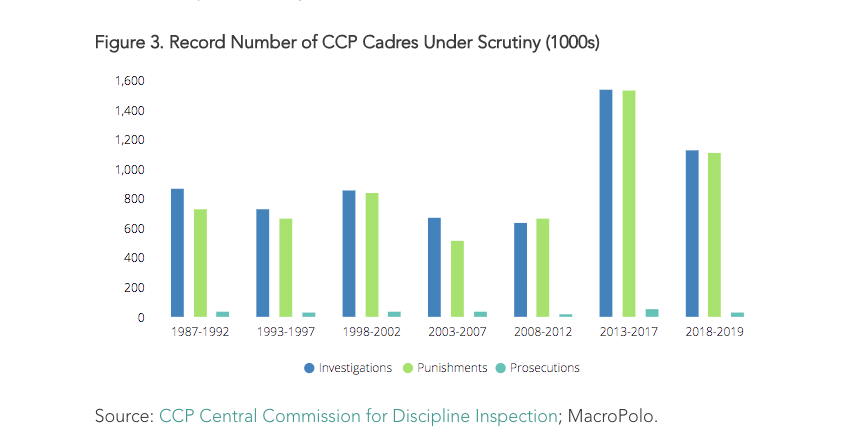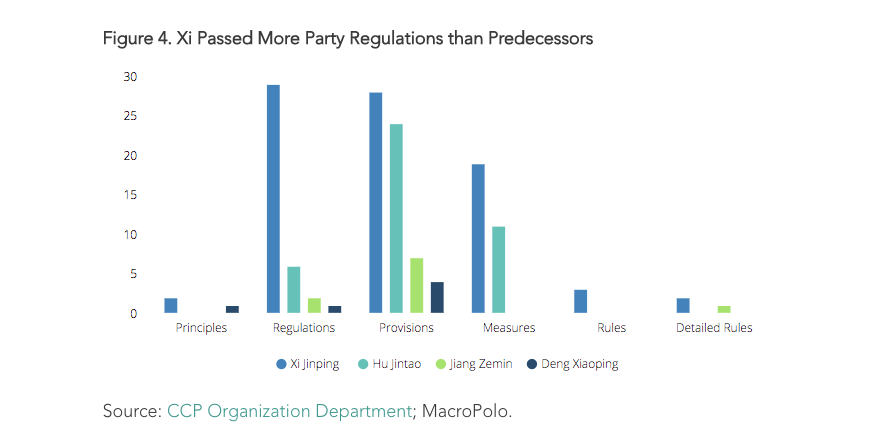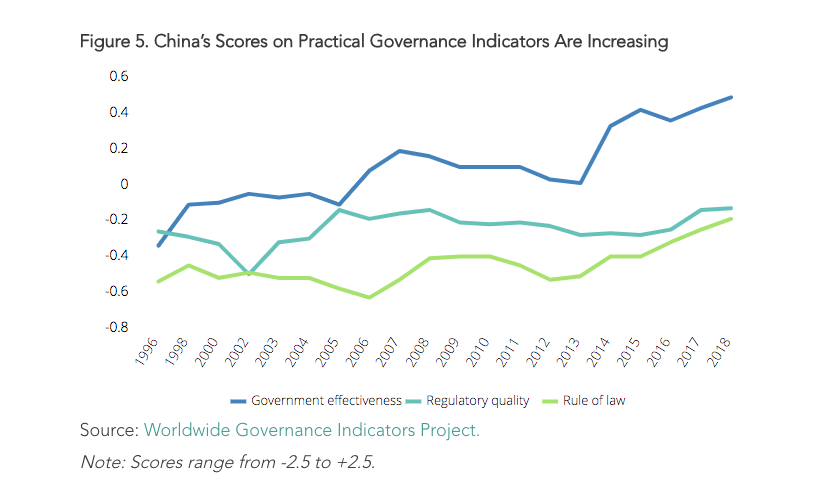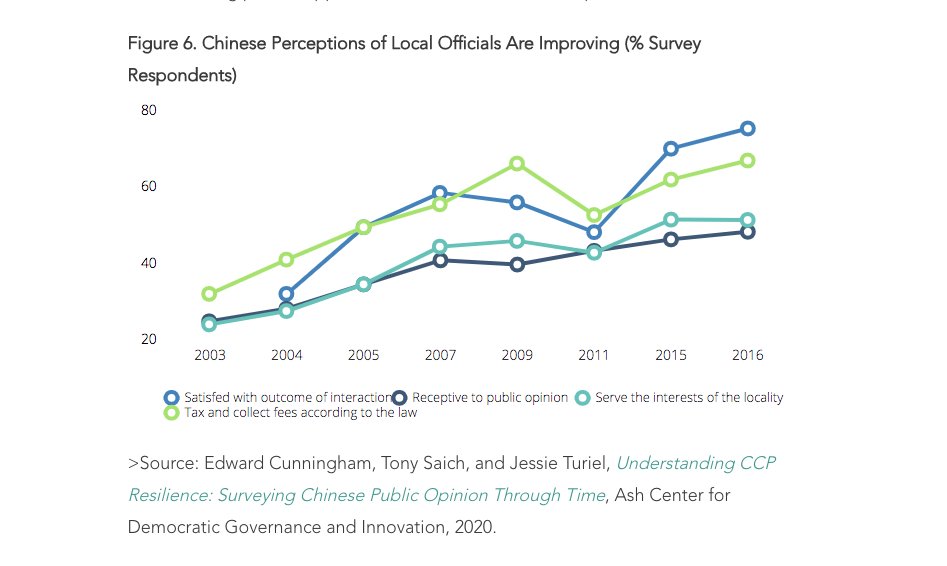How will Chinese politics develop in the next five years? In a new @MacroPoloChina report "Forecast 2025: China Adjusts Course" my base case is 1) Xi consolidates power 2) Xi focuses on politics of policy execution 3) Xi& #39;s system gets more done [Thread] https://macropolo.org/analysis/china-forecast-politics-2025-stronger-as-xi-jinping-goes/">https://macropolo.org/analysis/...
First, I think Xi emerges stronger from the 2022 Party Congress & 2023 NPC, remaining CCP Secretary, CMC Chair & PRC President, without anointing an heir apparent. He& #39;ll stack key organs of power with more loyalists and centralize more responsibilities into the Party& #39;s hands.
Despite high-profile dissidents and reports of discontent, there& #39;s not much evidence of a backlash in the Party& #39;s elite selectorate. Discipline investigations of central CCP-PRC-PLA cadres have fallen dramatically, suggesting Xi is feeling more not less secure in Zhongnanhai.
Second, Xi will use his power to focus even more on "the politics of execution" — his overarching goal to to reform a "fragmented" Chinese political system to make it a better instrument for implementing central policies. We& #39;re seeing a renewed focus on this in Party discourse.
Xi& #39;s preferred method for increasing political control is increased supervision of bureaucratic and local agents of the Party-State. This is reflected in record numbers of discipline investigations and punishments, which are set to reach new heights and pivot toward lower levels.
Stricter discipline will be enforced against clearer laws and regulations that clarify how the system works, with one example being Xi& #39;s record focus on formulating new central Party regulations. Compliance will be reinforced thru more ideological education and repression.
Third, the politics of execution, combined with more efficient fiscal policies (see @hzsong chapter) and hi-tech surveillance (see @mattsheehan88 chapter), will help Beijing deliver better living standards for most Chinese, which will reinforce popular & elite support for Xi.
Policy implementation is hard to measure in an overall sense but the Worldwide Governance Indicators Project suggests government effectiveness is improving under Xi, with the values in the chart below all well above the median for other upper-middle-income countries.
Xi& #39;s governance reforms also seem to be having a salutary effect on local-level policy implementation and grassroots perceptions of the Party-State. Xi& #39;s aim is not just higher incomes but also better overall & #39;quality-of-life& #39; inc. education, health, environment, etc.
Of course, practical difficulties and bureaucratic hindrances will persist, with far-from-perfect implementation and lingering long-term policy challenges. But Xi’s governance agenda will work in the sense that more of what Beijing wants done around China will actually happen.
Also, I discuss a possible secondary scenario for the next five years where basically Xi makes major policy errors that threaten China’s growth, stability, and/or regime security, which results in coordinated elite mobilization against Xi and a destabilizing power struggle.
But I think this is less likely because Xi’s grip is too strong and his policymaking is effective enough that his “politics of execution” agenda will, on balance, succeed in achieving progress on making China’s political system a more efficient machine for his policy agenda.
There& #39;s more detail on arguments, assumptions, caveats, indicators, and secondary scenarios in the full report. Forecasting is always fraught, but it& #39;s worth examining our assumptions for the future, and I always welcome comments and critiques: https://macropolo.org/analysis/china-forecast-politics-2025-stronger-as-xi-jinping-goes/">https://macropolo.org/analysis/...

 Read on Twitter
Read on Twitter